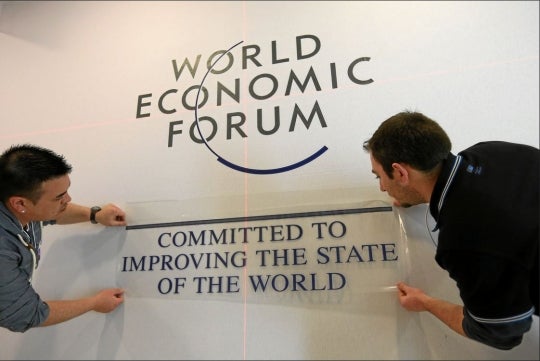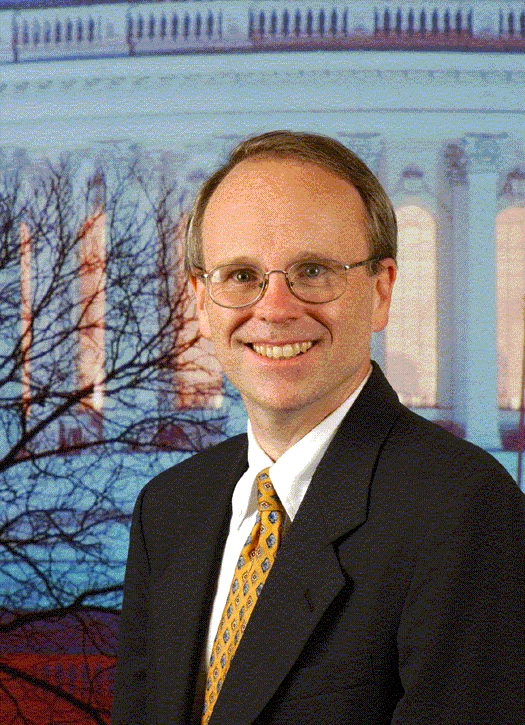
Metaphor of the month, via a deft dispatch from Davos: Thomas “Piketty was not in attendance this year – which was like putting on ‘Hamlet’ without the Prince” of Denmark, quipped Larry Elliott, the economics editor of The Guardian, as he needled ostentatious Davos-goers for only half-heartedly living up to the Davos dictum of being “ ‘committed to improving the state of the world,’ provided nothing much changes.”
Let’s shift the Shakespearean citation slightly, from “Hamlet” to “Macbeth”: Like Banquo’s ghost, the specter of Piketty’s analysis of inequality and injustice seemed to haunt many private-sector leaders at Davos this year – and thus the scholar from the Paris School of Economics didn’t need to be present in order to have a powerful impact at this year’s World Economic Forum.
Amid last week's self-exculpatory denialism from the unrepentant-oligarch wing of the Davos Man culture, one could almost hear the apologists for plutocracy and the free-market fatalists joining the conscience-stricken Macbeth in shrieking to Banquo's implacable apparition: “Thou canst not say I did it! Never shake thy gory locks at me!”
The Davos 2015 parade of plutocrats may have been worth all the time and trouble, after all – despite its customary spectacles of self-indulgence – if the pageantry helped pique the conscience of some of the One Percenters and their courtiers, at least momentarily. “Most of the conversations between chief executives here are about Piketty-type issues. They talk about things [at Davos that] they wouldn’t be talking about back in the boardroom,” one eminent corporate leader told Elliott of The Guardian. Piketty-inspired concerns about inequality – along with fears of chronic economic stagnation and an irretrievably despoiled planet – seem likely to inform this year’s top-level global policy forums, from Addis Ababa in July to the United Nations in September to Paris in December.
Signaling that many private-sector leaders have been awoken by, and are responding to, Piketty's landmark analysis of the intensifying concentration of capital in ever-fewer hands – which is provoking a more rigid stratification of society along hardening lines of social class – the World Economic Forum itself set the stage for Davos 2015 by publishing a 14-point agenda for promoting more inclusive growth. That analysis, searching for constructive solutions, is certainly a welcome contribution to the debate. Yet Piketty’s analysis of the widening gaps between the ultra-wealthy and everyone else – with Davos as perhaps an inadvertent self-parody of the cocooned Uber One Percent – suggests that there’s scant hope for mending a torn society unless policymakers enact policy changes on a vast scale: by (among other priorities) adopting greater progressivity in tax rates and enforcing a crackdown on cross-border tax evasion.
(An aside, regarding those who quibble with a point of Piketty-era terminology – and those who have attempted, and have conspicuously failed, to refute Piketty’s logic. Using a chicken-and-egg argument, some theorists lament the Piketty-inspired focus on the term “inequality,” insisting that inequality may be the outgrowth of, rather than the cause of, economic stagnation and social stratification. Fair enough. Yet such casuistry dwells on a distinction without a practical difference. Enacting pro-growth programs to avoid “secular stagnation” would surely be wise policymaking. Yet no serious plan would envision going back to a pre-2008-style “GDP growth at any cost” approach. The global financial crisis of 2008 revealed the recklessness of simplistic gun-the-engine, GDP-uber-alles policies that produce merely unsustainable, low-quality growth. Today’s pragmatists, instead, champion a more inclusive economy that eases social divisions and sustains broader opportunity – promoting what the World Bank Group calls “shared prosperity.”)
Judging by Piketty’s esteem among Davos 2015 participants, most leaders of the private sector – all but a recalcitrant few, some of whom dwell on the free-market fundamentalist fringe – have evidently gotten the message (at last): Chronic inequality and stifled social mobility have reached a socially intolerable and perhaps politically destabilizing intensity. Yet if all but an eccentric remnant in the private sector “get it,” do public-sector policymakers – many of whom seem ever-eager to do the bidding of the most self-aggrandizing monied interests? The Davos-style ideal of “capitalism for the long term” is motivated by “enlightened self-interest,” yet many boardrooms – and those politicians who are forever at their beck and call – apparently need still more enlightenment and less self-interest.
Charting the next steps beyond Piketty's “Capital in the Twenty-First Century" – advancing from academic analysis to social action – will be the next order of business in 2015, a year with parliamentary elections in several pivotal countries. Just in time for the post-Davos and pre-election season, a newly published book seems poised to pick up where Piketty left off: emphasizing that society needs a healthier balance between private-sector dynamism and public-sector activism, undergirded by a humane sense that an economy with truly shared prosperity should prioritize social fairness.
With their appetites whetted by early excerpts published this week in The Observer, many admirers of Piketty will be eager to read “How Good We Can Be: Ending the Mercenary Society and Building a Great Country” by Will Hutton, the principal of Hertford College, Oxford. Hutton – for all his gloom about the injustices inflicted on his native United Kingdom over the past 35 years – advances an optimistic agenda that might show the way toward correcting decades’ worth of policy errors.
“Inequality has become a challenge to us as moral beings,” declares Hutton, reinforcing Piketty’s view of a society starkly stratified by social class. A callousness toward social divisions has spilled over from the economic realm into political decision-making, resulting in an “amoral deficit of integrity” – and Hutton is not shy about pointing to a specific turning point, or about naming a specific name.
“Ever since [Margaret] Thatcher’s election in 1979, Britain’s elites have relegated concerns about inequality below the existential question of how to restore our capitalist economy to economic health, a matter deemed to transcend all other considerations,” writes Hutton. “The language of the socioeconomic landscape has been commanded by words like efficiency, productivity, wealth generation, aspiration, entrepreneur, pro-business and incentives. To the extent they are significant at all, preoccupations with inequality have been seen as of second-order importance.”
The “raw trends” of the weakened power of wage-earners and the strengthened dominance of capital-owners – the outgrowth of Piketty’s iconic formula, r>g – “are then exacerbated by the reduction of taxation on capital, companies and higher earners in the name of promoting incentives and 'wealth generation.' " No wonder, Hutton asserts, that the United Kingdom has suffered “a stunning increase in inequality, the fastest in the OECD.”
Readers who were drawn to Piketty’s logic – yet who were left by "Capital" with a despairing feeling of “where do we go from here?” – are likely to warm to Hutton’s work, which extends the logic of his influential 1995 analysis, “The State We’re In.”
“Indifference to the growing gap between rich and poor, in all its multiple dimensions, is the first-order-category mistake of our times," warns Hutton. "No lasting solution to the socioeconomic crisis through which we are living is possible without addressing it.”
Recalling his years of energetic columns in The Guardian and The Observer, Hutton’s activist economic prescription in “How Good We Can Be” seems likely to include a better-focused approach to industrial policy; targeted investment in innovation capacity; pro-entrepreneurship mechanisms to sharpen competitiveness; and pro-active tax policies that ease rather than intensify the wealth divide.
Many of those who missed this year’s Davos triumph of Piketty-style reasoning are now awaiting the arrival of Hutton’s new book on this side of the Atlantic. Piketty scored the scholarly sensation of 2014 with the publication of “Capital.” My early hunch is that Hutton, with “How Good We Can Be,” just might achieve a similar agenda-setting success in 2015.


Join the Conversation